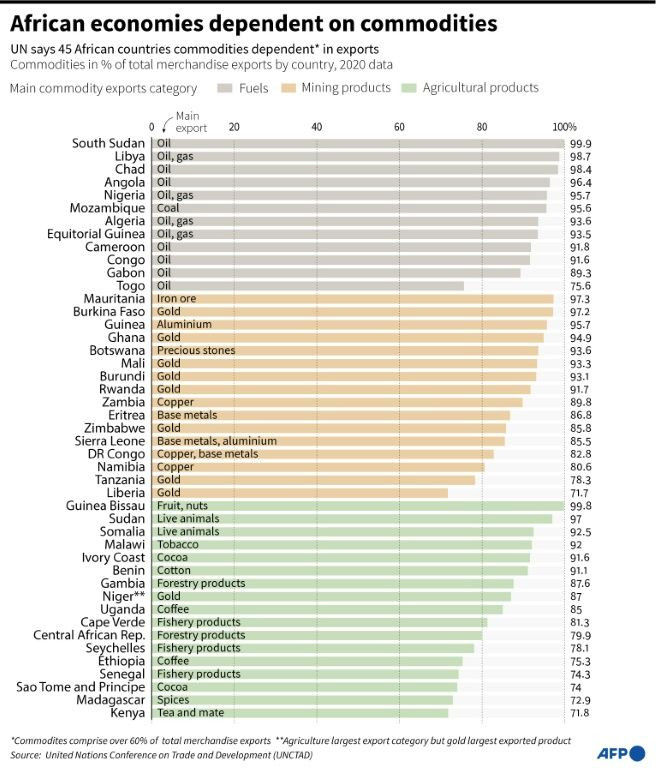UN Urges Africa To Swap Commodities For Tech
The UN's trade body on Thursday said African economies were vulnerable to a triple shock as it urged governments to pave the way for tech startups that would ease dependence on commodities.
"A recent analysis by the UN Global Crisis Response Group on Food, Energy and Finance, which analyses the global economic cost by the war in Ukraine, indicates that Africa and especially sub-Saharan Africa is now one of the world's most exposed regions to the current crisis," Rebeca Grynspan, secretary-general of the United Nations Conference on Trade and Development (UNCTAD), said at the launch of the body's latest Africa report.

"One out of two Africans -- that means over 600 million people -- are severely vulnerable to food, energy and finance shocks, all at once," she added.
The report recommended diversifying away from both commodities exports, on which many African economies continue to depend, and traditional service sectors -- such as travel and transport -- towards more knowledge-intensive services.
"We have been talking about diversification as long as I can remember, and how Africa can diversify its economy, and the fact is that we've been looking at it through the lens of diversifying within the commodity sector," said Paul Akiwumi, a director with UNCTAD.

"Now it's also very timely because of technology," he added.
He pointed to budding fintech, healthtech, agritech, e-mobility and other tech-focused sectors in African countries.
"Africa has a growing educated middle class who need these jobs, and these types of small and medium size enterprises provide high skilled jobs -- operational officers, finance officers, government liaison relations officers, software engineers, HR managers, administrative accountants," he said.
Akiwumi said governments must provide entrepreneurs the necessary regulatory frameworks, as well as training and capacity building.
He also said they must implement the African Continental Free Trade Area (AfCFTA) agreement, a trade pact that came into force last year, to scale up developments across the continent.
© Copyright AFP {{Year}}. All rights reserved.





















